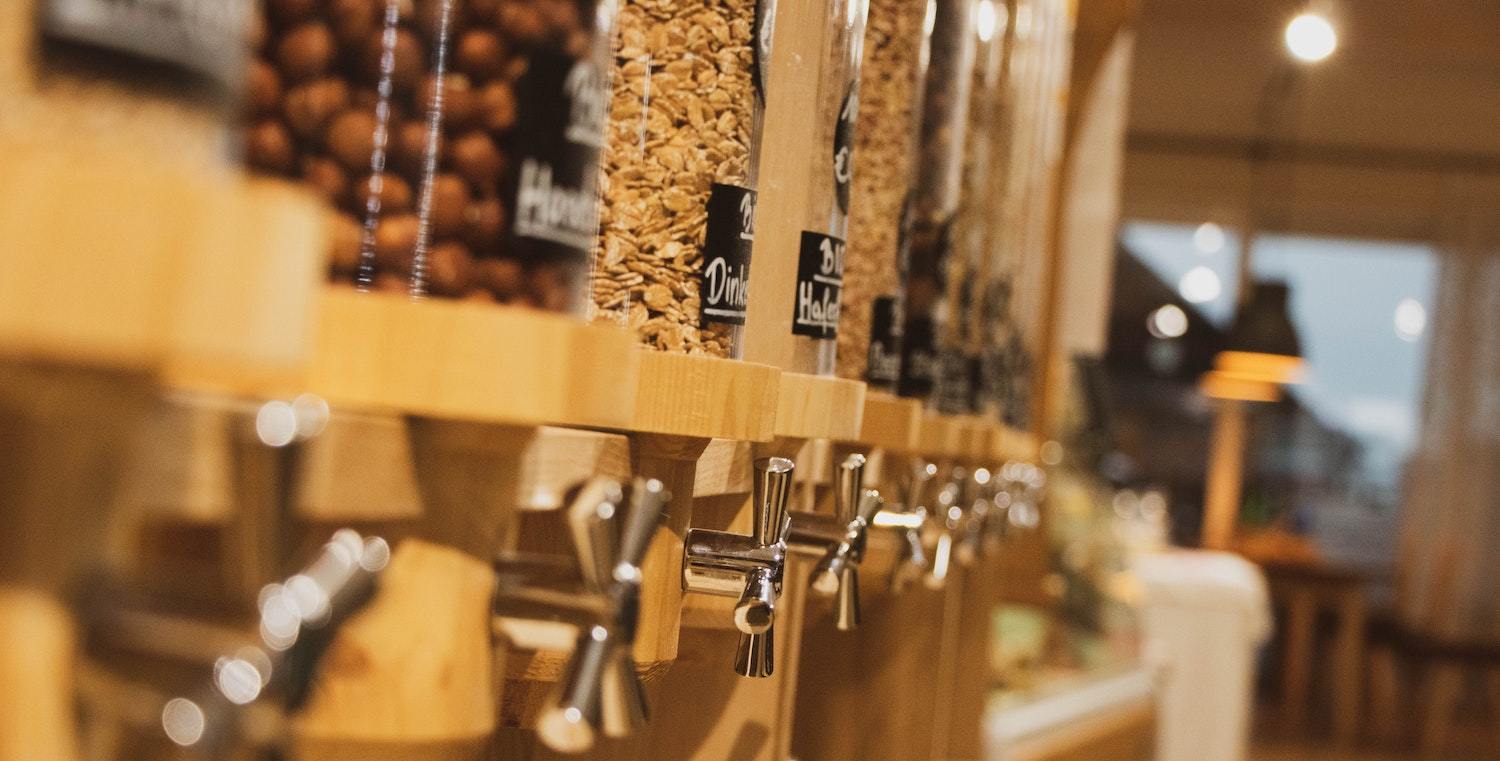Food is our fuel and a central part of our lives. Unfortunately though, food consumption generates a jaw dropping amount of waste, and if you’re serious about living a zero-waste lifestyle, targeting your grocery shopping routine is a great place to start.
Both experienced zero-waste experts and newcomers alike can agree that zero-waste grocery shopping can be a bit of a tricky mission. We can speak for most zero-waste experts when we say that it can take weeks, months, and even years to perfect your zero-waste grocery shopping routine. And that’s not your fault - our food systems are currently designed to work against you and your zero-waste goals. When you walk into your local supermarket, packaging and plastics are everywhere you look.
But not to worry - there are solutions, and, thankfully, tons of advice from zero-waste experts that have paved the way; hopefully making it that much easier for newcomers to adjust and feel confident in their new zero-waste grocery shopping skills. But be warned, this journey is just that: a journey. While zero-waste grocery shopping is not impossible, it may make you want to throw in the towel on more than one occasion.

Creating a zero-waste grocery shopping routine that works for you and your family will take research, a whole lot of patience, planning, and much trial and error. Over time, though, you will arrive at a routine that you are prepared for and enjoy.
We have compiled a list of our Top 5 tips for managing a zero-waste grocery shopping routine, as well as some product suggestions that may make your transition and lifestyle a little easier.
Tip #1: Stock Up on Reusable Bags
Reusable bags are, without a doubt, one of the most prized zero-waste possessions. They will make everything about your grocery trips easier, and have a significant environmental impact that is far from harmful.
The average reusable bag has a lifespan that equates to more than 700 disposable plastic bags; most of which are only used once. One person using reusable bags over their lifetime would save more than 22,000 plastic bags from escaping into the environment, including the ocean. A plastic bag can take from 15 to 1,000 years to break down, depending on the environment it's disposed of in.
Fortunately, many states and municipalities have already taken the initiative to ban or tax plastic bags. Your transition to using reusable bags will (hopefully) be the “new” normal one day.

In the meantime, invest in some durable, long-lasting reusable bags. Reusable totes made from strong material like recycled bottles, hemp, bamboo, etc., are excellent, check out our Long Handle String Bags and Mesh Net Drawstring Bags for great options. If you don’t want to rush out and stock up on reusable bags, you most likely have some type of reusable bag already; old backpacks are a great option (plus, you can wear them) to go with.
Use them to carry all of your grocery items, or anytime you make a purchase at a store or market.
Tip #2: Buy in Bulk
Purchasing certain goods in bulk will save you money, and is usually a better option environmentally, as it avoids consuming as much packaging, if any at all. Packaging used for bulk items are also usually recyclable or compostable.
Dry goods like rice, flour, and legumes are perfect examples. Health food stores will often sell bulk bags of these goods upon request, you may just need to wait a few days for them to order them for you under their wholesale price. If you or your family uses and eats large quantities of these items, buying in bulk may be a great option for you!

These types of items are usually sold in bulk in large paper or fiber sacks, and if you can reuse them or compost them, you’re following zero-waste guidelines. Plus, buying in bulk could provide enough of these items to last you six months to one year (or more), depending on how often you utilize them. Instead of purchasing small quantities of these items that will result in excess packaging on a weekly or bi-weekly basis, you could cut this down to just once per year!
In recent years, more storefronts across the country have opened up, inspired by the zero-waste movement, to provide zero-waste bulk stores for these items and many more. A quick search will provide you with maps and guides to find the closest zero-waste bulk store near you. Most of these stores allow you to bring your own containers, where you fill up on your favorite items and products.
You can find things like cooking oil, package-free tofu, grains, nut butters, and more!
Tip #3: Browse Farmer's Markets
Farmer's Markets are a sustainable holy grail. They offer most, if not all of their produce and products package free, and are much more understanding and lenient when it comes to bringing your own bags and containers compared to supermarkets.

They are special places that allow you to connect better to your community, and those who produce your food. Many farmer's markets now only allow organic suppliers who use certified organic practices, reducing the amount of synthetic pesticides and chemicals that pollute soil and water. Organic farms are also adopting other low-impact practices, including on-site composting, to help mitigate climate change and other environmental concerns.
Farmer's markets not only provide food, but you may also find package free soaps and hygiene products, sustainably made jewelry, clothing and so much more!
Tip #4: Avoid Excess Packaging
Packaging is the bane to any zero-wasters’ lifestyle. It lurks everywhere, and is far from being more regulated for environmental benefit. Thus, we need to take it into our own hands.
Some supermarkets are offering recycled packaging for their products, but we can do even better than that. We are creatures of habit, and it is habitual to place our produce items in those single-use, thin, plastic bags provided in supermarkets. From now on, if your reusable bags are unavailable, simply skip the plastic bags all together and pile your produce into your cart. At checkout, simply sort them as a courtesy to your cashier, or take yourself through self-checkout.
For other items, such as bread, pastries, and deli options, make it a habit to bring your own metal lunch boxes or containers. At the bakery or deli counters, simply ask if you can take home some goods that have not yet been packaged.

Have a conversation with them about why it is important to you! Coach them through it; this may be their first time providing a service to someone living a zero-waste lifestyle. Pass your reusable containers or bags over to them, place your order, and have them provide a barcode label to use at checkout.
In summary, do your best to avoid unnecessary packaging, and have conversations with staff at your chosen food supplier in order to have the best zero-waste grocery routine possible.
Tip #5: Reuse and Repurpose as Often as Possible
Packaging that can’t be avoided should be reused as often as possible, for as long as possible. Glass jars are a perfect example; think salsa, queso, pasta sauce, and pickle jars. They are hard, if not impossible to avoid, but their packaging is toxic-free, glass, and can be reused endlessly for years. One can never have too many jars.
If you do wind up with piles of jars, give some away, use them to package gifts, or send them to recycling if you cannot find a creative way to repurpose them, as glass can be recycled indefinitely without ruining the quality of the package. But, make sure they are rinsed and cleaned out well before doing so.
Cardboard packaging is not the worst, but should also be avoided. Again, reuse and recycle as often as possible to minimize your environmental impact. Plastic packaging should be avoided at all costs, as it is not only bad for the environment, but studies have shown that plastic is also harmful to humans.

These tips are designed to help beginners navigate what zero-waste shopping looks like, and by no means are the only tips to follow. Be creative and curious, and branch out in forums or social media pages to find zero-waste inspirations!






